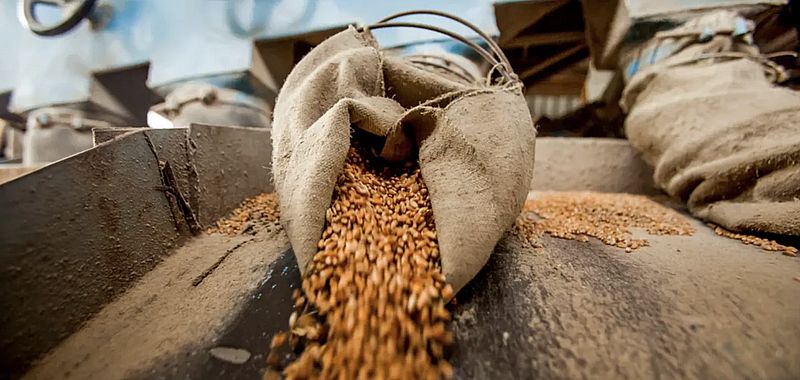Russian grain trader files lawsuit against new Syrian government

Rostov grain trader Pallada has filed a lawsuit with the Moscow Arbitration Court against the Central Bank of Syria and the General Corporation for Trade, Storage and Processing of Grain of the Syrian Arab Republic. The amount of the lawsuit is 5.61 billion rubles (approximately $71.5 million) due to failure to fulfill obligations under grain supply contracts. This amount exceeds the company’s net profit for 2024, which, according to SPARK-Interfax, amounted to 4.4 billion rubles. The lawsuit was filed on June 19, 2025, but the court has not yet disclosed the details of the case.
The situation with the lawsuit is connected with the change of power in Syria after the overthrow of the Bashar al-Assad regime in December 2024. The new leadership of the country, headed by Ahmed al-Sharaa, the leader of the Hayat Tahrir al-Sham (HTS) group, is demonstrating a pragmatic but tense approach to relations with Russia. The HTS demands compensation from Moscow and a review of “past mistakes,” which complicates bilateral relations, including issues of implementation of previously concluded contracts.
The Pallada company, founded in 2022 in Rostov, quickly became one of the largest enterprises in the region. The company’s founder, Sergey Kuznetsov, also known as a wind tunnel trainer and European record holder, previously participated in projects to produce spare parts for agricultural machinery. The company’s website is currently down, and the lawsuit against Syria could set a precedent in the context of complicated economic relations between Russia and the new Syrian government.
Recall that the former regime of Bashar al-Assad was one of the largest buyers of grain illegally exported from the Russian-occupied territories of Ukraine, in particular from the Kherson and Zaporizhia regions, after the start of the full-scale invasion in 2022. According to Ukrainian sources, significant volumes of Ukrainian grain were transported through Russian ports to Syria, which allowed Russia to receive foreign exchange earnings, bypassing sanctions.
Read also
Abbey Commodities – General Partner of BLACK SEA GRAIN.KYIV-2026
Black Sea & Danube Barley Market at a Turning Point: Demand Pressure and Regi...
US Supreme Court rules Trump’s emergency duties illegal
Mercosur: Protective measures for European agriculture
US makes concessions on pulses in new trade deal with India
Write to us
Our manager will contact you soon



